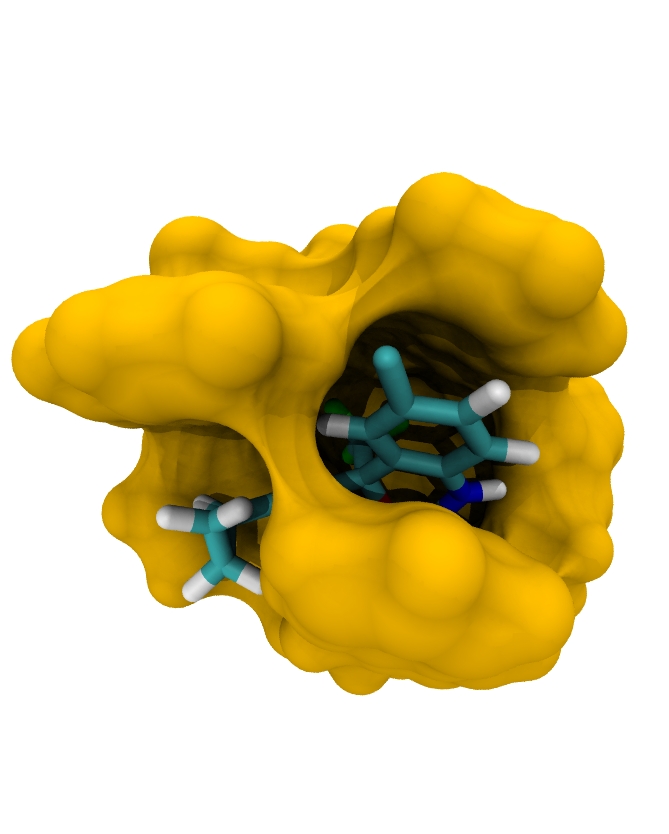Rolando Hong
 I received a basic biochemical education (B.Sc.) at Havana University. After a couple of years in the industry developing immunoassays to detect HIV and Dengue viruses I decided to continue my educations with some informatics (M.Sc.), in those years I get particularly interested in biomedical applications of signal analysis and I developed a passion for other theoretical aspects of biology and biochemistry. This finally lead me to obtain a Ph.D. on Structural and Functional Genomics at SISSA, Trieste. Currently I am a posdoc in Laio's group. My project, in collaboration with prof. Federico Berti, University of Trieste, is to develop theoretical methods to predict small high affinity peptides for biosensor applications.
I received a basic biochemical education (B.Sc.) at Havana University. After a couple of years in the industry developing immunoassays to detect HIV and Dengue viruses I decided to continue my educations with some informatics (M.Sc.), in those years I get particularly interested in biomedical applications of signal analysis and I developed a passion for other theoretical aspects of biology and biochemistry. This finally lead me to obtain a Ph.D. on Structural and Functional Genomics at SISSA, Trieste. Currently I am a posdoc in Laio's group. My project, in collaboration with prof. Federico Berti, University of Trieste, is to develop theoretical methods to predict small high affinity peptides for biosensor applications.
Research project: Designing small peptides for molecular detection
 Any biosensor contains a “biological recognition element” (BRE), that is, a biomolecule able to recognize a desired analyte. Besides this basic characteristic a biosensor should also transduce and amplify into measurable signals the physico-chemical changes caused by the interaction BRE-analyte. The first step of my project involves the development of methods to predict good BREs of peptidic nature able to bind with high affinity and specificity small organic molecules.
We have created an optimization procedure to simultaneously (...and partially) explore the sequence and conformational spaces of small peptides. Initial experimental assessments using the predicted peptides are encouraging. Detailed study of theses peptides using MD simulations and NMR experiments are currently underway.
Beyond the reach of this project we are also interested in targeting small peptides to selected regions of more complex molecules (e.g., proteins, DNA) with the goal of creating new technological, therapeutical or scientific applications of peptidic design.
Any biosensor contains a “biological recognition element” (BRE), that is, a biomolecule able to recognize a desired analyte. Besides this basic characteristic a biosensor should also transduce and amplify into measurable signals the physico-chemical changes caused by the interaction BRE-analyte. The first step of my project involves the development of methods to predict good BREs of peptidic nature able to bind with high affinity and specificity small organic molecules.
We have created an optimization procedure to simultaneously (...and partially) explore the sequence and conformational spaces of small peptides. Initial experimental assessments using the predicted peptides are encouraging. Detailed study of theses peptides using MD simulations and NMR experiments are currently underway.
Beyond the reach of this project we are also interested in targeting small peptides to selected regions of more complex molecules (e.g., proteins, DNA) with the goal of creating new technological, therapeutical or scientific applications of peptidic design.